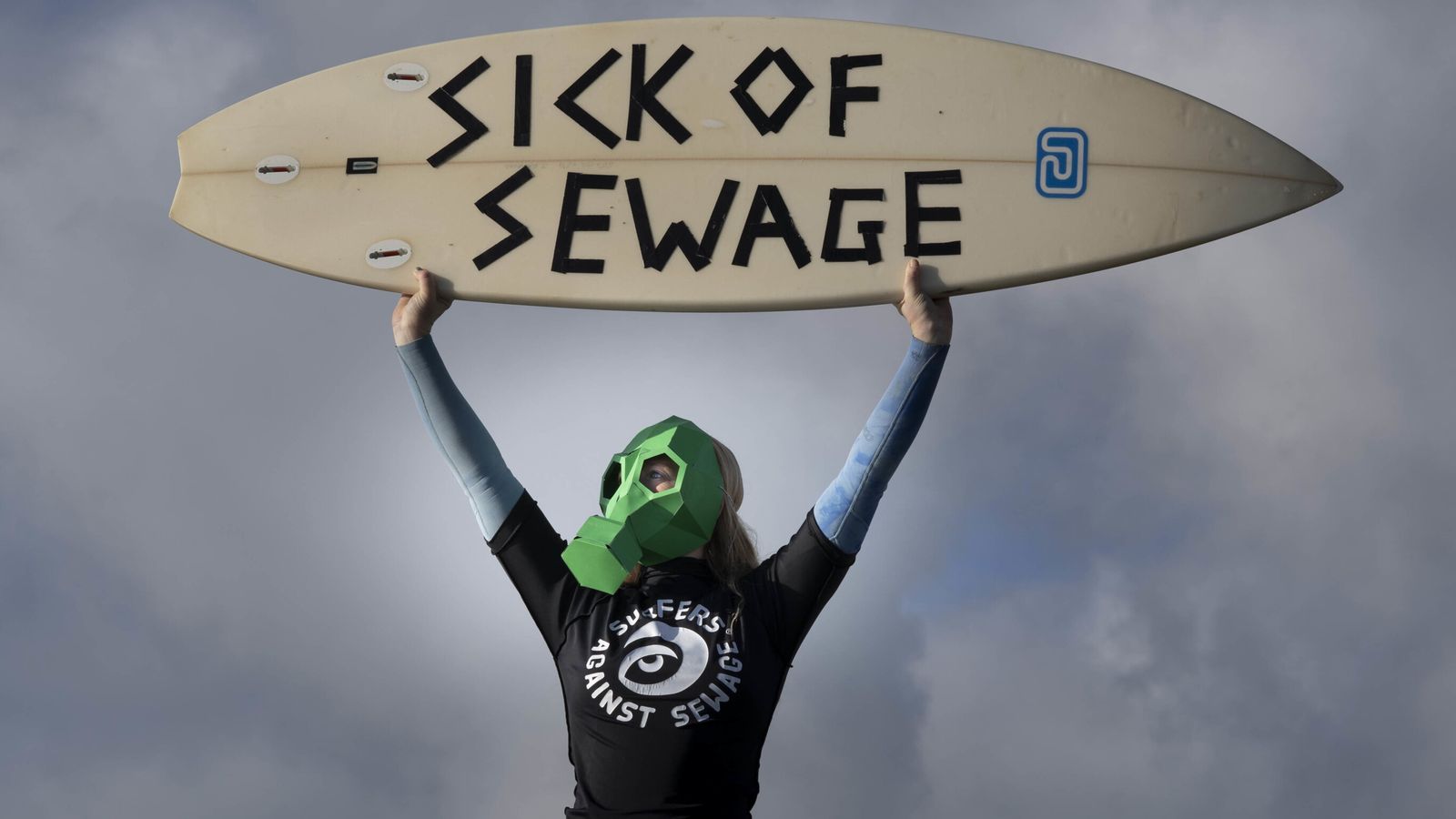Well, first the good news: untreated sewage was pumped into our rivers and seas less frequently last year than the year before.
Overall, storm overflow spills – when sewage gets released into the environment due to treatment works being overwhelmed – were down 19% in 2022, according to the latest data.
But the raw figures give you an idea of just how bad our raw sewage problem is.
In 2021, there were more than 372,000 sewage spills reported to the Environment Agency; it’s now just over 300,000. That’s the equivalent of 822 spills every day.
The duration of spills overall was also slightly reduced, but still add up to 1.75 million hours of sewage flowing into our rivers and seas last year.
Water UK, the body that represents water and sewerage companies, said today was an “important milestone” as spills were down for the fourth consecutive year.
However, in its statement, the Environment Agency said the reduction in spills in 2022 was largely due to the abnormally dry weather than any action taken by water firms. They said the same of the reduction between 2021 and 2020.
So when will we get to a situation when our sewage stays where we flush it?
Water UK says water and sewage firms were bringing forward £56bn in investment to address the issue. But campaigners argue they’re being given far too much time do that.
Read more:
Govt plans to tackle sewage spills on beaches criticised for ‘repeating’ past mistakes
Water bosses admit their performance has been ‘unacceptable’ amid anger over sewage spills
Water companies could face £250m fines if they ‘don’t deliver’ on cutting sewage dumping
Following a consultation last year, the government is requiring water firms to “improve” storm overflows that run onto bathing water sites by 2035, and remaining overflows by 2050.
A timeline that’s already going to land the government in the High Court. In September, the court is hearing a case brought by campaign groups and businesses that’s attempting to force the government to take more urgent action.
The case is invoking Public Trust Doctrine – a piece of law dating from 1299 – that requires the state to protect things like fisheries for future generations.
But it’s far from an easy problem to fix; much of our sewer network was built by the Victorians – now entombed by modern infrastructure.
While the Victorians factored in a certain amount of population growth, they probably didn’t envision decades of under-investment by the regional water authorities and then water companies that inherited the network after privatisation in the 1980s.
Nor did the Victorians know about climate change, which is increasing the intensity of rainfall events and putting even more pressure on an already overwhelmed system.
Click to subscribe to ClimateCast wherever you get your podcasts
Watch the Daily Climate Show at 3.30pm Monday to Friday, and The Climate Show with Tom Heap on Saturday and Sunday at 3.30pm and 7.30pm.
All on Sky News, on the Sky News website and app, on YouTube and Twitter.
The show investigates how global warming is changing our landscape and highlights solutions to the crisis.









